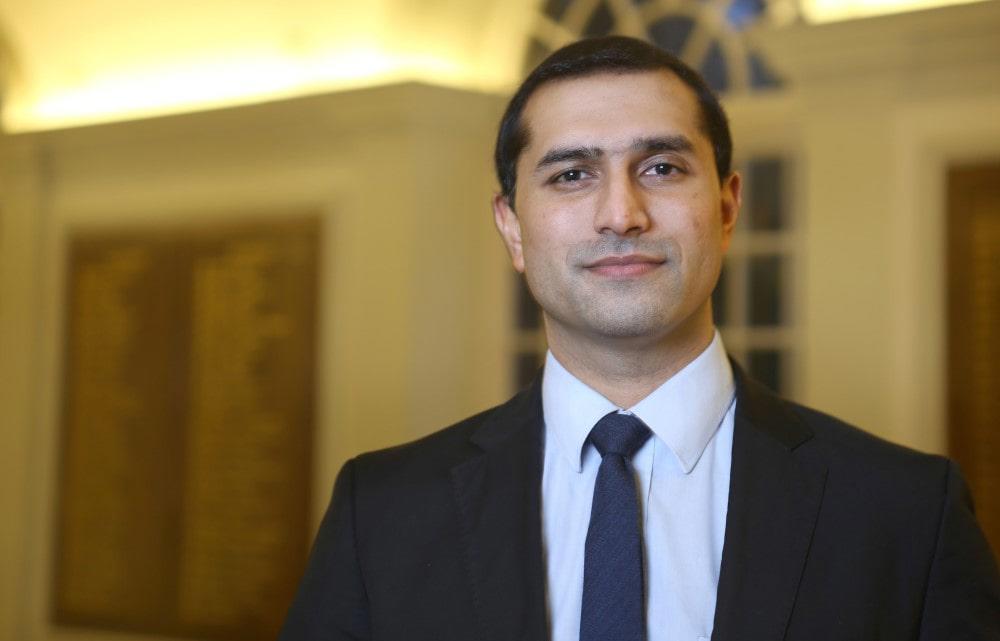The emergence of COVID-19 vaccines, developed and distributed as they have been at unprecedented speed, was undoubtedly a turning point in the pandemic.
With the first winter following the widespread roll-out of the vaccination campaign approaching, the Government has been looking at policies that would increase vaccine coverage, with health and social care settings being a high priority.
Initially mandatory vaccinations were introduced in adult social care settings in England and this meant that being vaccinated became a condition of employment for these social care workers.
However, ministers have recently decided to extend this in England to all Care Quality Commission-regulated health and care settings and as such all health and social care workers who are in patient-facing roles in these settings will have to be vaccinated or will be unable to be deployed in these roles.
The BMA fully supports the vaccination campaign as it has with campaigns in the past. It recently passed policy at the annual representative meeting stating it believes every doctor should be vaccinated.
However, mandatory vaccination comes with its own consequences that it argues needs to be weighed up against any potential benefits.
The association has called on the Government in its consultation to address the impact a vaccine mandate might have on dangerously thin staffing levels in the event that staff who cannot, or choose not, to be vaccinated are redeployed or even see their employment terminated.
Whilst we believe everyone should have it [the vaccine] we also believe people should have personal choiceDr Sharma
It also successfully argued policy should be delayed until at least past the winter so as not to affect the workforce at the most critical time.
The Government’s argument was that, given the specific nature of health and social care settings and the duty of care healthcare workers have towards their patients, mandatory vaccination made sense.
The BMA has also highlighted the dissonance between the Government focus on mandatory vaccination to prevent spread to patients, when in England it had until recently largely dispensed with rules on face coverings and social distancing measures in wider society where the same patients could become infected.
BMA consultants committee chair Vishal Sharma says he is in no doubt vaccination is a critical component in the fight against the virus, adding that he fully supports vaccination among all individuals where medically appropriate.
He warns, however, that any plan to mandate vaccination of all staff working in frontline healthcare poses significant practical questions, particularly concerning timescales and logistics.
‘We certainly believe vaccination is essential to control the pandemic and people should be vaccinated wherever possible.
‘Whilst we believe everyone should have it [the vaccine] we also believe people should have personal choice. As doctors, we would never force patients to have a treatment even if we thought it was in their best interests and I think the same applies to staff.’
Promotion or coercion
Dr Sharma says that rather than taking a coercive approach through mandating the vaccine, he would instead rather see the Government taking all steps to promote uptake among those healthcare staff still unvaccinated.
‘We really should be encouraging people wherever possible to have the vaccine. Give people the time to weigh up the decision and as much support as possible to encourage them to voluntarily have the vaccine,’ he says.
While there are strong arguments for maximising numbers of vaccinations from a clinical point of view, mandating any form of medical treatment poses significant ethical considerations.
 SHARMA: ‘Vaccines aren’t the whole part of the story’
SHARMA: ‘Vaccines aren’t the whole part of the story’
‘It is generally accepted that people have the right to make their own private healthcare decisions and ordinarily consent to medical treatment is also based on that principle of voluntariness,’ says BMA medical ethics committee chair John Chisholm.
‘Moving away from that model does need to be carefully thought about and properly justified and proportionate.’ Vaccine mandates already exist within the health service, with many staff required to be immunised against hepatitis B as part of their job.
I’m concerned there could potentially be impacts on other vaccination programmesDr Chisholm
Dr Chisholm says, however, it is misleading to draw an exact parallel between the two immunisations.
‘There are analogies from when hepatitis B vaccines were first available and then became close to mandatory certainly for people engaging in exposure-prone procedures,’ he says.
‘[However] Those who say that people already know that exposure-prone procedures will require hepatitis B immunisation before they pursue a career in healthcare, that’s true now but it wasn’t true when the policy was first changed.’
 CHISHOLM: Mandating vaccine could reinforce opposition
CHISHOLM: Mandating vaccine could reinforce opposition
Highlighting how voluntary approaches to vaccination could be successful and respectful of individual rights and liberties, Dr Chisholm says there are potentially clinical as well as ethical concerns regarding mandating vaccines.
Citing lower uptake of the COVID vaccine among certain ethnic groups, Dr Chisholm says a blanket policy on vaccination could be regarded as unfairly targeting those groups.
‘Beyond the health service there is a risk that a mandate for vaccination could be counterproductive more generally as it could reinforce anti-vaccination opposition rather than understanding and addressing the concerns that particular groups of staff may have,’ he says.
‘I’m concerned there could potentially be impacts on other vaccination programmes including childhood immunisations if people see that mandatory vaccination is being imposed on some groups. It could reinforce opposition and suspicion.’
There are around 100,000 NHS staff that have chosen not to be vaccinatedDr Sanford-Wood
The potential effects on frontline staffing resulting from the mandating of vaccination, is something the Government insists it is considering as part of its consultation.
If enacted, it would require the deadline for double vaccination to be April next year. In light of the proposed timescale for implementation if the mandating of vaccinations were to go ahead, these assurances have done little to allay concerns with what effect the loss of even small numbers of staff could have on the NHS.
Published on 15 November, the Royal College of Physicians’ annual consultant census reveals that 48 per cent of consultant posts advertised in 2020 ultimately went unfilled, up from 36 per cent in 2013. Meanwhile a study by the BMA published in September this year warned the NHS in England was facing a shortfall of 50,000 doctors as it headed into the 2021/22 winter period.
Frontline staff
Any further upset to the already precarious and razor-thin staffing margins in the NHS could severely compromise the health service’s ability to respond to clinical pressures posed by COVID and outbreaks of flu.
Following a 12-week grace period, the deadline for mandating COVID vaccinations among care home staff passed on 11 November, with around 32,000 staff in this sector still unvaccinated after this date.
‘You can argue that this draconian measure effectively forced 56,000 people who would otherwise have been unvaccinated to become vaccinated,’ says Mark Sanford-Wood from the BMA GPs committee.
‘But you can look at it from the other end of the telescope and realise that that means you’ve lost 32,000 care home workers that we cannot afford to lose.
‘The estimate is that there are around 100,000 NHS staff that have chosen not to be vaccinated. If the same proportion of them stick to their guns and refuse to get vaccinated, that would mean us losing around 35,000 frontline staff.’
There is a natural limit to how much any workforce can be redeployedDr Sanford-Wood
The redeployment of staff who can’t or choose not to be vaccinated is cited as a means by which damage to staffing levels could be mitigated, with non-patient roles, remote working and phone consultations providing alternatives to patient-facing positions.
Dr Sanford-Wood warns, however, that large-scale redeployment within general practice is ‘a complete non-starter’, owing to the limited numbers of staff and non-patient roles available.
 SANFORD-WOOD: We can’t afford to lose frontline staff
SANFORD-WOOD: We can’t afford to lose frontline staff
He adds that there is a very real concern among many healthcare staff that they could ultimately lose their jobs in the event of a vaccine mandate.
‘Within general practice we don’t have lots of redundant, non-patient facing roles that we could move people into. We run with pretty lean staffing rosters so if someone is deemed not capable or not allowed to fulfil their roles, we don’t necessarily have other roles we can redeploy them to,’ he says.
‘There is a natural limit to how much any workforce can be redeployed. There have to be other unfilled roles for them to be redeployed into and, if they’re not there, then you effectively made yourself unemployable as you’re not able to do the job for which you’ve been employed.’
Staff impact
‘We can’t afford to lose any staff at all from the NHS,’ says Dr Sharma.
‘We’re already incredibly stretched. The NHS workforce has a high vacancy rate and has massive problems with existing staff being exhausted and burnt out. If we were to lose any more staff, for whatever reason, it would be an incredibly difficult situation to manage.’
In the background papers to its consultation, the Government claims that while there has been a high uptake in vaccination among the general public and health and social care staff, variation in rates exists within the latter.
Among NHS trusts uptake rates can vary from around 83 per cent to 97 per cent of staff for a first dose, and 78 per cent to 94 per cent for both doses.
Exemption numbers
For those staff who have not received the vaccine, it is unclear from the data how many are unvaccinated owing to medical exemptions.
‘We have to remember the vast majority of staff have chosen to be vaccinated already,’ says Dr Sharma.
‘Yes, vaccination is the right thing to do but it makes us uncomfortable to think it is being forced on staff who otherwise may not be able to work. Vaccines aren’t the whole part of the story. It can’t be a vaccine-only strategy; it needs to be a vaccine-plus strategy.
'It seems very heavy-handed to force NHS staff to have a vaccine when, at the same time, other measures such as face coverings aren’t being mandated in other areas. ‘We can’t just say vaccines are the only solution here. It needs to be vaccines plus all the other measures that would reduce infection.’

